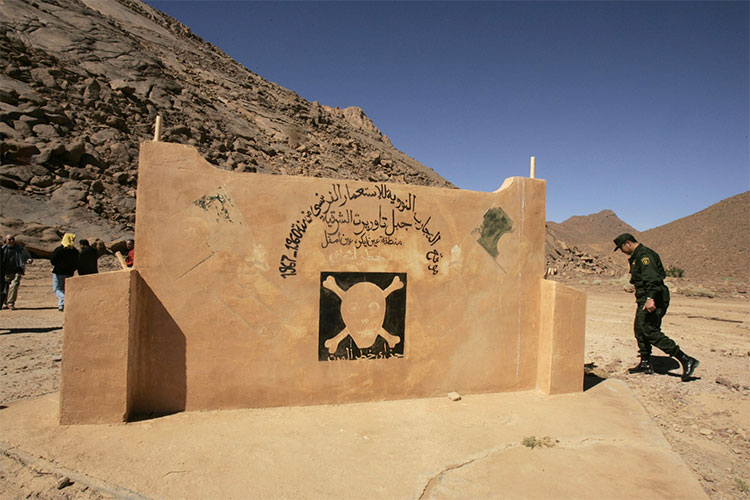France buried thousands of tons of nuclear waste and refuses to cooperate with Algeria

Jean-Marie Colin, an expert in combating the spread of nuclear weapons, said that the French law on recognizing and compensating victims of nuclear tests, which came into effect on January 5, 2010, has ended in failure, more than 14 years after its enactment.
The enactment of this law came in the context of allegations that the French authorities responded to the demands of French soldiers and Algerian and Polynesian civilians affected by exposure to nuclear radiation in southern Algeria and in French-occupied Polynesia, which caused fatal diseases for them and their families, and contaminated the lands where they live.
Jean-Marie Collin, who works for the international non-governmental organization “ICAN”, which fights the proliferation of nuclear weapons, revealed that the number of people potentially exposed to the radioactive fallout from 210 French nuclear explosions is about 400,000 people, including civilian and military personnel who participated in the nuclear campaigns and the Polynesian and Algerian populations residing near the explosion areas, according to an interview with “France 24”.
According to a report on the activities of the year 2023 issued by the Committee for the Compensation of Victims of Nuclear Tests in France, 2,846 compensation requests were registered, a number considered very low compared to the number of affected people, estimated at about 400,000 people. However, according to the same source, only 10,026 people were recognized as victims of French nuclear tests, out of the total number of people who submitted files. As for the requests of Algerian victims, none of them have been responded to, although victims continue to die to this day from different generations.
Colin attributed “the main reason for this failure to the lack of political will on the part of French governments since 2010, as no one has moved to publicize this law, and no one has given the necessary political impetus to help these populations face the multiplicity of administrative procedures. For example, the main documents for submitting the file to the CIVEN Committee were only translated into Polynesian and Arabic, respectively, in 2020 and at the end of 2023. Applicants (especially Bedouin populations) also face great difficulty in providing documents proving their presence in these areas of the desert and in the deadlines set for claiming compensation.”
The nuclear non-proliferation activist estimated that “French political and diplomatic actors find it difficult to face the reality of the humanitarian consequences of nuclear weapons”, noting that France remains strongly opposed to any action on this issue, as was clear from its vote on December 28, 2023, like Russia, North Korea and the United Kingdom, against UN Resolution 78/240 on “the heavy legacy of nuclear weapons”, against 171 votes in favor of the resolution, which aimed to launch a process of victim assistance and environmental rehabilitation.
During its nuclear program, France carried out 210 nuclear explosions between February 13, 1960 and January 27, 1996. Southern Algeria, specifically the Reggane desert region during the French occupation, was the scene of the first 17 nuclear tests, before the explosions shifted towards occupied French Polynesia, which witnessed 193 explosions.
For decades, successive French governments have hidden the truth about the radioactive fallout from those tests, says Colin, and thousands of tons of nuclear waste have been buried in the sand or dumped in the Pacific Ocean. “The French government must now come out of denial and cooperate with Algeria so that the radioactive materials buried in the Sahara desert can be found.”







